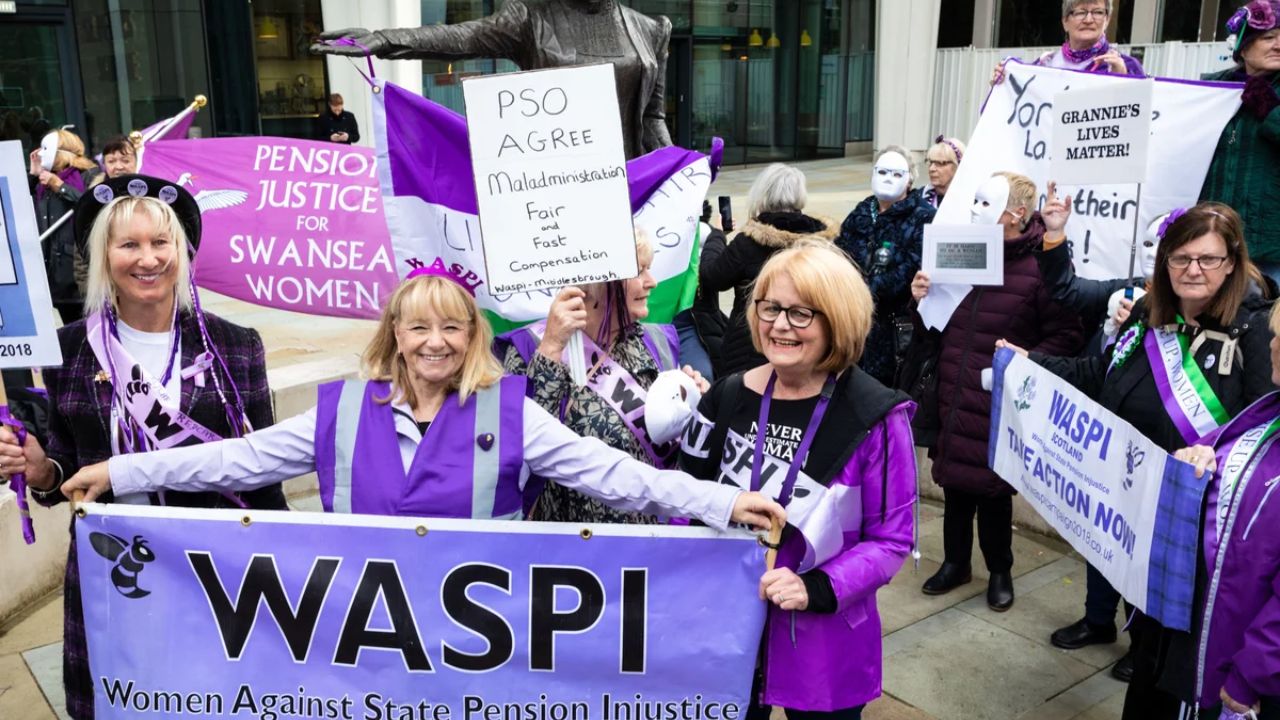Tens of thousands of women born in the 1950s could finally be a step closer to justice as the long-running WASPI (Women Against State Pension Inequality) campaign prepares for a landmark High Court hearing this December. The legal showdown is scheduled to take place on 9 and 10 December 2025 and may determine whether affected women will receive long-awaited compensation payments from the government – potentially up to £2,950 each.
The WASPI campaign has been fighting for a decade to secure financial redress for millions of women who say they were unfairly impacted by changes to the State Pension age. Many were given little or no notice when the government increased the pension age from 60 to 66, leaving them with years of unexpected financial hardship.
 State Pension Age Scandal: High Court to Decide on £2,950 Compensation
State Pension Age Scandal: High Court to Decide on £2,950 Compensation
What Is the December Hearing About?
The upcoming court date will see senior judges review the government’s decision to reject the Parliamentary and Health Service Ombudsman’s (PHSO) recommendation to compensate the affected women. The Ombudsman concluded earlier this year that the Department for Work and Pensions (DWP) had committed “maladministration” by failing to adequately inform women about the pension age changes in time.
Despite this ruling, the government declined to act, prompting WASPI campaigners to escalate the matter to the High Court.
Campaign chair Angela Madden said the decision to proceed with legal action was made with “great reluctance,” but that it was necessary to hold the government accountable and ensure justice is served.
How Much Compensation Could Women Receive?
If the court rules in WASPI’s favour, it could open the door to compensation payments potentially worth £2,950 per woman. This figure aligns with the recommendation made by the Ombudsman in a previous stage of the investigation and has become a focal point of the campaign.
While no official figure has been confirmed, the sum is widely seen as a fair and realistic starting point, especially given the financial stress many women endured due to the sudden changes in retirement planning.
Campaigners stress that time is of the essence, as many of the women affected are now well into their 60s or 70s and have been waiting more than a decade for redress.
Legal Safeguards in Place
Earlier this year, WASPI secured a vital legal safeguard in the form of a cost-capping order. This means that even if the campaign loses the judicial review, their liability for legal costs is limited to £60,000. On the other hand, if WASPI wins, the government could be ordered to cover up to £90,000 of the campaign’s legal expenses.
This legal protection was viewed as essential in enabling the campaign to proceed without the fear of financial ruin, especially given that it is funded largely by donations and grassroots support.
A Decade of Delay and Frustration
This December’s hearing marks a critical milestone in what has been a decade-long struggle for recognition and compensation. Many WASPI women have shared heartbreaking stories of poverty, mental stress, and health issues brought on by the abrupt rise in the pension age with little warning.
A recent poll showed that 88% of WASPI women felt politically ignored, even by parties that once pledged support. With pressure mounting from the public and political groups alike, the spotlight is now firmly on the government’s next move.
Should the High Court side with the WASPI campaign, it could pave the way for one of the most significant mass compensation efforts in recent UK history.
For now, all eyes are on December.
High Court date set for Waspi women challenging Government decision https://t.co/KbQbPRJ9ru pic.twitter.com/osyvyLN3U4
— Worcester News (@worcesternews) September 3, 2025
